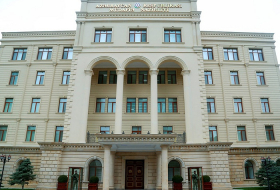Artificial Intelligence is here to stay, making itself comfortable in our daily lives. Be that as it may, even entrepreneurs and specialists with outstanding hi-tech achievements insist on establishing international control standards for its development.
Ogtay Alakbarov , chief specialist at the Institute of Information Technologies, says in his interview to AzVision.az that successful technological progress is impossible without AI in the future, because human abilities have their limits, while computers can perform an infinite number of operations day and night. This is another factor to demonstrate how crucial AI is.
‘Artificial Intelligence refers to computer systems or programs that include the characteristics of human intelligence, designed to study the solutions of processes and simulate cognitive abilities. In other words, AI strives to have computers think and behave like humans.
John McCarthy and Marvin Minsky pioneered the idea of AI in 1956. The technical limitations of the time did not allow the AI to spread its wings. It started being widely distributed and studied in the 2000s, reaching a higher level of development after 2012.
Initially, only the governments were interested parties in the development of AI, while big corporations such as Apple and Samsun joined the race in 2017-2020, establishing AI laboratories and hubs.
There are two types of AI, general and narrow. General AI is a system that matches or surpasses human cognitive and problem-solving capabilities across a wide range of intellectual situations. The existing technology does not allow us to build AGI, because it is not yet possible for a computer to think like a human and make autonomous decisions.
Narrow AI is defined as computer systems programmed to perform specific tasks. We see them in our daily life all the time, such as software that can play chess against a human, customer service chatbots at large companies, etc.’
- Can AI be misused to shape public opinion and spread disinformation?
‘Absolutely and it is one of the most urgent issues. AI is often employed to disinform, manipulate and misguide wide audiences. AI is currently so developed that poorly informed people can be easily deceived. It is absolutely possible to generate false information and mislead the masses through AI.
AI can also be employed to develop advertising content. There is a rather dangerous process of creating content tailored to influence views and beliefs through analyzing user databases. Special bots imitiate human behaviour on social media, make appropriate responses, which can be used as a manipulation tool.
Among these, the deepfake is the most disturbing. Imagine a fake multimedia speech by a government or public figure, indistinguishable from the original, that is shared on social networks. People that are little aware of these matters accept them at their face value, which can instigate enmity among people.’
- American billionaires Elon Musk and Steve Wozniak announced last year and again this spring that uncontrolled and chaotic employment of AI may lead to negative consequences. They even called for a coordinated decision to stop or slow down the developments in the area. I am aware of the UN agreement made last year to establish a common base to monitor the area. How reasonable is such anxiety and excitement?’
‘Their concerns are justified. One of the consequences is the possibility that AI can start making independent decisions beyond human control. This is impossible currently. But there is a risk that events might develop in that direction.
There is a danger that AI can be used to build autonomous weapons. Some countries and companies are more advanced in high technologies, which is an example of growing inequality.
I would also like to mention the ethical dilemmas. Who will take responsibility for the decisions made by the AI? Both the UN and organizations working in the field are constantly discussing ways of keeping the process under human control.’
- President of Azerbaijan Ilham Aliyev and his assistant Hikmat Hajiyev spoke of the possibilities of manipulating AI in hybrid wars and emphasized the need to pay attention to the field and take precautionary measures. What can we do individually and jointly with other countries in the region?
‘The President’s mention of cyber security proves our country’s interest in the field. We have seen many cyber-attacks. One of the complexities in the field is that cyberspace is ever growing and renewing. While we might be hard at work to repel an X attack, the threat might already grow into 2X tomorrow. As technologies develop, so do the cyber-attacks and their complexity. While waging war against a country, having an idea about their weaponry allows us to choose a strategy of how to lead that war. Whereas with AI, while you are preparing to prevent an attack today, the one you must face tomorrow is of a completely different sort. This is precisely why our government is busy building institutions that will be responsible for cybersecurity and educating professional and skilled specialists in the field. Azerbaijan always studies and learns from practices abroad. Joining efforts for cyber security is always more effective, but it comes with a trust issue: some countries do not want to share their practices, guided by the principle that ‘they might someday be used against us’.’
- The real wars are fought in trenches. Is there a concept of trenches in cyber warfare?
‘It’s impossible to predict where a cyber attack might come from. Such an attack on a database of some government agency might produce more damage than a conventional war. Therefore, we must educate and train professionals to repel cyber-attacks. We must work on cyber literacy of the population. All this cumulatively will ensure a stronger cyber security system for a state.’
- Does that mean that the humankind is unknowingly building its killer? Or am I exaggerating?
‘There is some truth to your words. If we fail to keep the AI development and technologies under control, it won’t end well. While we build AI further, we must also boost security, its internal segment. Technological innovations and equipment must be guarded from outside interferences, because not all people intend to put these opportunities to use with their best intentions at heart.’
Sahil Isgandarov
More about:









-1744366755.jpg&h=190&w=280&zc=1&q=100)






































